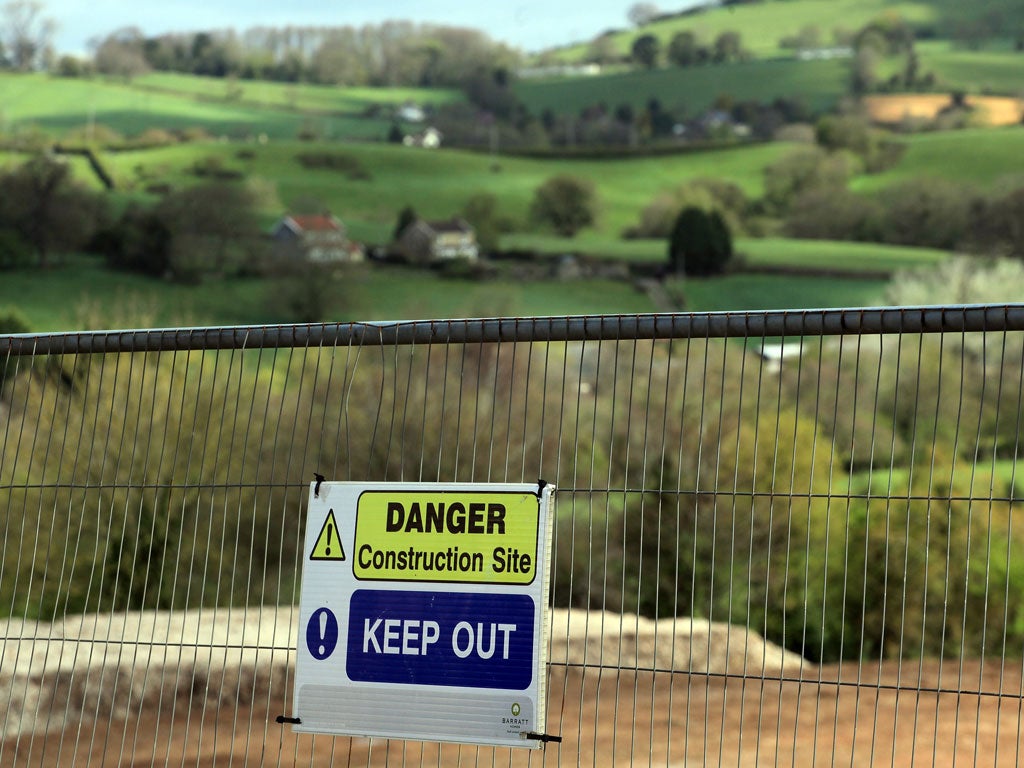Your support helps us to tell the story
From reproductive rights to climate change to Big Tech, The Independent is on the ground when the story is developing. Whether it's investigating the financials of Elon Musk's pro-Trump PAC or producing our latest documentary, 'The A Word', which shines a light on the American women fighting for reproductive rights, we know how important it is to parse out the facts from the messaging.
At such a critical moment in US history, we need reporters on the ground. Your donation allows us to keep sending journalists to speak to both sides of the story.
The Independent is trusted by Americans across the entire political spectrum. And unlike many other quality news outlets, we choose not to lock Americans out of our reporting and analysis with paywalls. We believe quality journalism should be available to everyone, paid for by those who can afford it.
Your support makes all the difference.The Government has unveiled plans to weaken the rules that prevent homes from being built on green belt land on the fringes of cities.
Large towns and cities across the UK have a swathe of land around them on which development is banned in all but exceptional circumstances.
The rule, introduced in the post-war period, is intended to prevent urban sprawl that occurred due to private house building in the early 20th century.
But under a government consultation launched on Monday rules will be changed to allow councils “to allocate appropriate small-scale sites in the Green Belt specifically for starter homes”.
While this would not allow generalised development on Green Belt, it would allow the construction of homes under the Government’s new Start Homes housing scheme.
The “Starter Homes” scheme involves private developers building new homes for people to buy; these homes are 20 per cent cheaper than normal homes to buy because of a small government subsidy.
The housing charity Shelter however calculated that families on average earnings would be priced out of the homes in 58 per cent of council areas by 2020.
Families earning George Osborne’s new National Living Wage would not be able to afford the homes in 98 per cent of the country.
An analysis by the Independent based Shelter’s figures found that the homes are for the top 10 per cent of earners, with a £50,226 salary required to buy one putting a buyer squarely among the country’s richest.
In London, the £76,957 salary required would put someone in the top 4 per cent of earners - everyone earning over £76,010.
The Starter Home scheme also only produces homes to buy, while increasing numbers of people are forced to rent in the private sector.
The Government has since 2010 dramatically slashed grants for building homes for social rent while concentrating on the more expensive “affordable” rent model. This has increased overall housing output but also housing costs for tenants.
Social housing has also been sold off under the Right to Buy programme, with an estimated 40 per cent of council flats sold under the scheme now rented out by private landlords across the UK, according to research published earlier this year by Inside Housing magazine.
Critics of the Green Belt policy, introduced in the 1947 Town and Country Planning Act, say it restricts the supply of homes in areas of high demand and created artificially high house prices in cities.
When the policy was first introduced councils built large numbers of homes for rent, but this construction has dropped off dramatically since the 1980s with private developers now responsible for construction.
Supporters of green belts say the urban sprawl built in the 1920s and 1930s did not produce liveable communities and that housing can be built in a properly-planned way without getting rid of green belt laws.
Clive Betts, the chair of Parliament’s Communities and Local Government Committee, advocates a review of which parts of land genuinely should be in the green belt, but told the Daily Telegraph newspaper the new consultation was “very worrying”.

Join our commenting forum
Join thought-provoking conversations, follow other Independent readers and see their replies
Comments